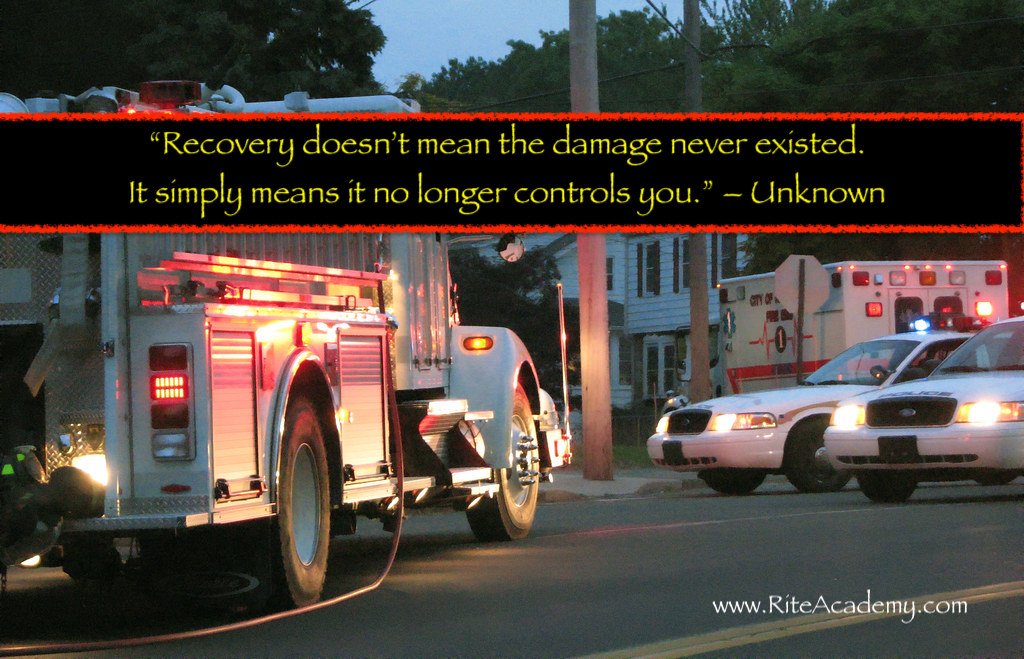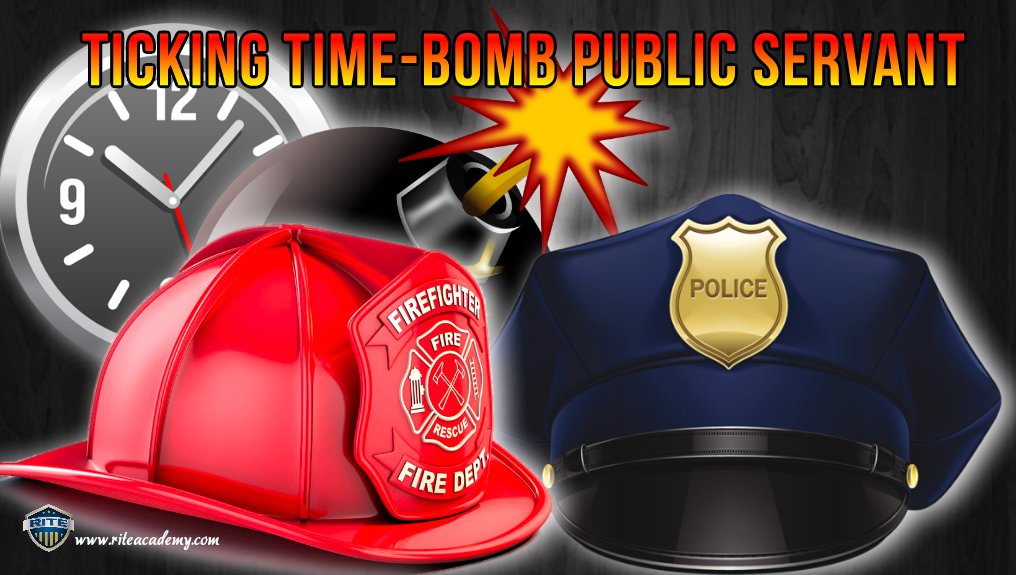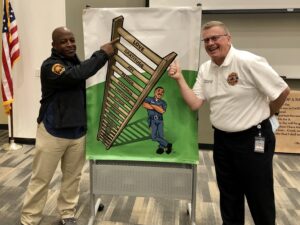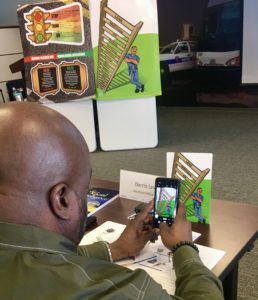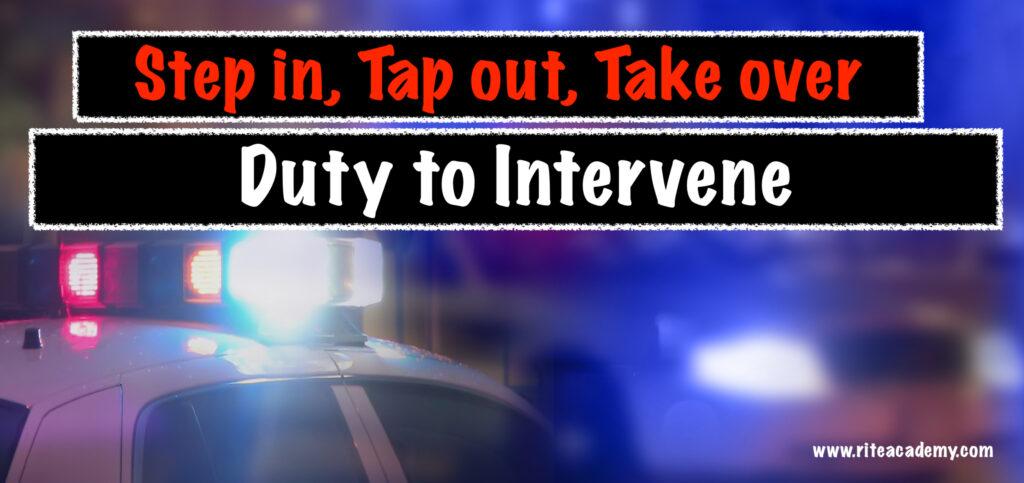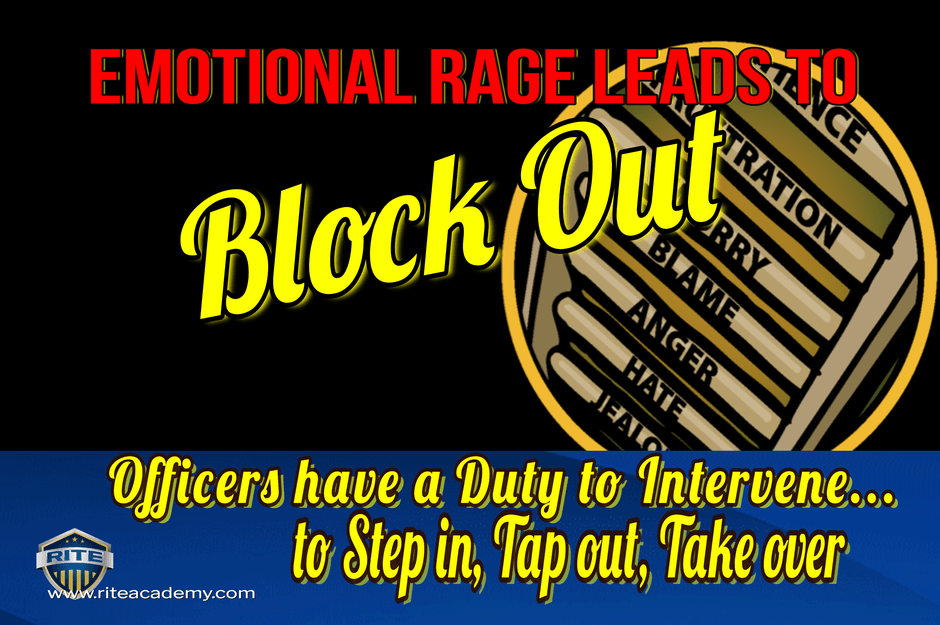In your agency, is it OK to not be Okay?
Have you ever asked a co-worker “are you okay?” and you get the common response,
“I’m Fine,” or “I’m Ok”, but deep down inside you know they’re not okay.
Or maybe it’s you that’s not okay?
If you’ve ever thought to yourself, “I’m not okay” or “I am not as fine as I tell people,” or “This job is killing me” then you might be reaching the tipping point of Cumulative Career Trauma.
Common (4) Steps of Cumulative Career Trauma
- First Year Excitement
- Years of trauma calls cause mental hardening
- Supervisor tells you, “Suck it up Buttercup”
- Breaking Point – Ticking Time Bomb
Step One – first-year excitement
Do you remember how you felt when you passed the public safety academy, and got sworn in? That ‘first-year excitement’ for the job had finally been achieved, and now you are pursuing your dream job. You passed field training, and finally cut lose. You hope new recruits come on board soon, so you are no longer called “the rookie.”
Step Two – mental hardening sets in
After many years of recurring traumatic calls (that most never witness), you find yourself getting mentally hardened with cynical thoughts. You can’t share most of these disturbing stories with anyone but co-workers. You quietly handle repeating images in your brain, while on the outside you cover it up by saying, “I’m fine” and “I’m okay”.
Step Three – ‘Suck it up Buttercup’
As time passes you start to get cold and bitter, spending more time than you should listening to toxic co-workers. Even the seasoned supervisor tells you to, “Suck it up Buttercup. This is the profession you choose, so just deal with it!” You know deep inside that something isn’t right, and you are changing, for the worse.
Step Four – Breaking Point
You finally reach your ‘Breaking Point’, where Cumulative Career Trauma has set in. The following signs may appear.
- You become the angry toxic employee, lashing out at others
- You turn to addictions (alcohol, drugs, emotional eating)
- You push people away (family and coworkers)
- You become a ticking time-Bomb, making serious on-the-job mistakes that harm yourself and others
- Self-destruction that could lead to ending the pain with Suicide
“Is it Ok in your agency, to not be OK?”
We’ve worked with many agencies that now realize many of their officers are suffering from mental stress and strain.
“Providing mental help that improves mental health is a must in today’s public service. Awareness that you are not OK, is the first step towards strengthening your mental wellness.” ~ Linda Webb
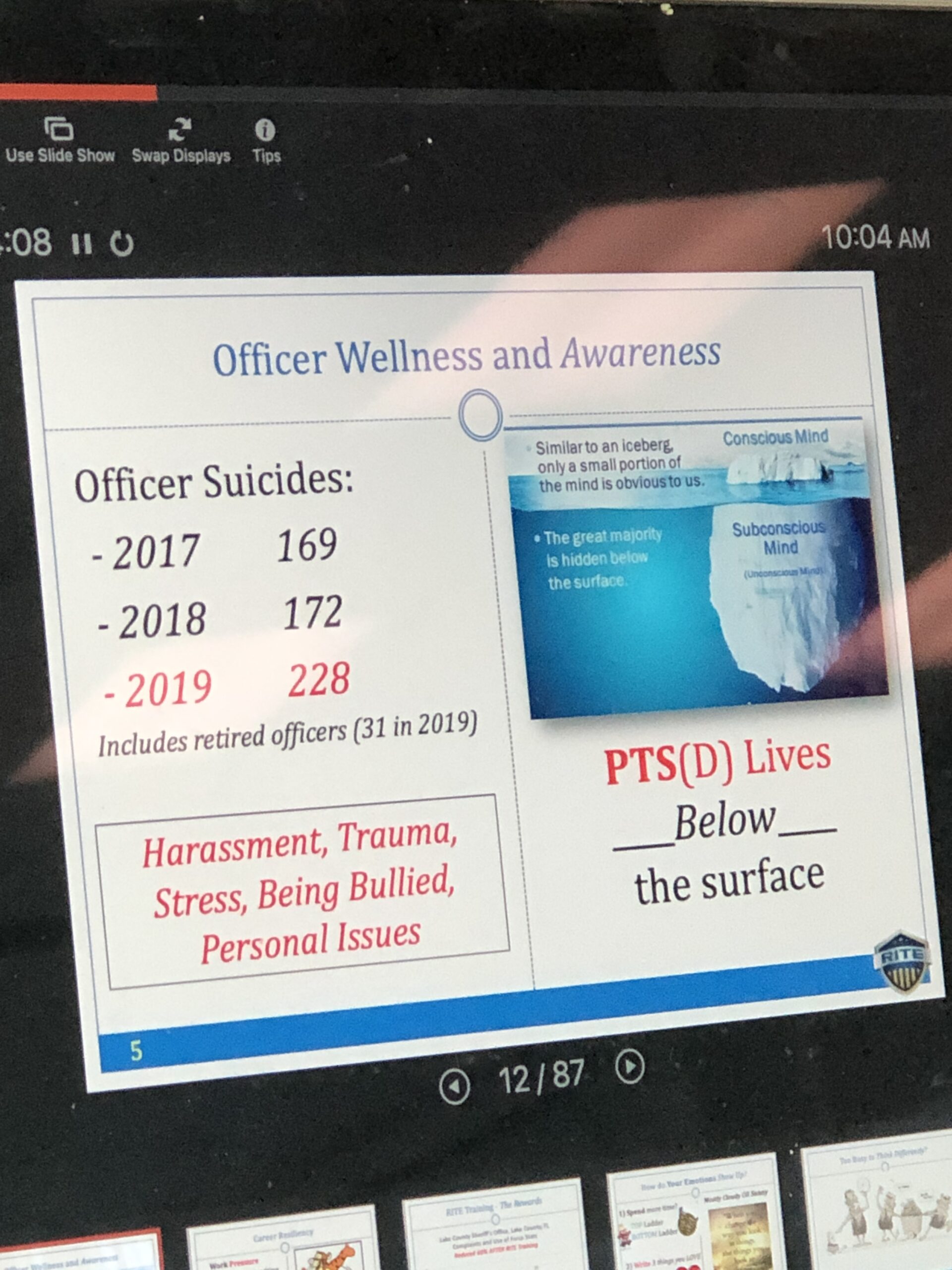
Since 2015, we’ve taught classes for leaders and trainers how to recognize the signs of PTS(D) and Cumulative Career Trauma. We teach them how to help their coworkers using RITE Tools that they can use to improve their internal communication, at work and at home.
If we can help employees become healthier, and stronger mentally then we can truly build VALUE inside the agency, while providing a better service to the community. It must become okay, not to be OK with education, peer support groups and counseling, and physical tools that employee use to work on their mental wellness.
Fred Jones of Lake County Sheriff’s Office did a TED Talk on the RITE’s success in their organization. He starts out by saying ‘hurt people…hurt people’ meaning when you are traumatically hurting inside as a public safety professional you might lash out onto co-workers and even make serious mistakes on-the-street.
Don’t let the Evolution of Cumulative Career Trauma reach stage 4 inside your organization. Take proactive steps to strengthen everyone’s mental wellness.

RITE’s Emotional Awareness ladder is the first step in learning what makes you tick. By asking the question, “what I am feeling?” you start the process of understanding your actions.
We’ve worked with many agencies that now say, “it’s okay, to not be okay… and we provide mental help for all employees.”
![]() Being aware that you are experiencing some negative emotions, is the first step. As we teach in class, “it’s okay to drop down the Ladder where Anger and Frustration are, Just down live down there.”
Being aware that you are experiencing some negative emotions, is the first step. As we teach in class, “it’s okay to drop down the Ladder where Anger and Frustration are, Just down live down there.”
In RITE Training we help departments learn Emotional Intelligence first. Once you are aware of your own emotions (EI), then you can move onto helping others with Social Intelligence (SI).
RITE’s Emotional Awareness ladder is the first step in learning what makes you tick. By asking yourself, “what I am feeling” you start the process of understanding your actions. The RITE Model helps improve department morale while building community trust.
Don’t take a blind-eye to the employee who is showing warning signs. Don’t let someone inside your agency implode like a ticking time-bomb before it is too late.
ABOUT
![]()
About RITE Officer Training – It starts with helping officers communicate with themselves more effectively. The RITE Ladder Tool teaches EI & SI that builds Career Value, improves Department morale, helps Professional workplace culture and reduces police misconduct to mitigate risk.
Check our EVENTS page for current trainings. For private classes where we come to you… Contact us below.
![]()
